Graham Reid | | 14 min read
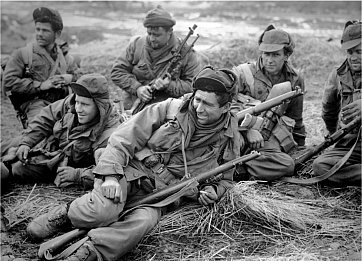
The undistinguished town of Kap'yong, 90 minutes' drive north-east of the South Korean capital Seoul, isn't on many maps. Even the young man at the desk in Seoul's Tower Hotel can't say where it is, although he served in the Army in the district eight years ago.
As an ordinary country town nestled in a wide valley between towering hills, it is a quiet place, the only regular noise coming from the dozens of trucks that rumble everywhere in this industrious country.
But many New Zealanders know Kap'yong and remember this as a very different, often terrifying place. Half a century ago it was the scene of one of the most brutal and important battles of the Korean War.
Fifty years to the day after the first salvoes were fired in the Battle of Kap'yong, in which a huge Chinese force attempted to take the valley and were repelled by Commonwealth forces and American Army units, Trevor Miller from Panmure, now 78 and a former signaller, is back in the valley for commemorative services.
But an image from that time haunts him still. As his eyes well with tears and his bottom lip quivers uncontrollably he apologetically gropes for words to convey the horror of what he saw. "There was this young girl, maybe 14 or 15, and she was on the side of the road ... crawling, you know, on her hands and knees. And ... and her feet and legs ... they were burned black. I'm pretty sure it had been napalm but ...
"But, we couldn't stop, you know?" he says, his eyes pleading for understanding. "We just had to go on. I've always wondered how that girl got on afterwards. I get emotional about it, just to think that we couldn't stop and help."
Miller has been back in South Korea these past 10 days as one of a pilgrimage group of 60 veterans, revisiting old battle sites, attending United Nations and Commonwealth commemorations, paying tribute to fallen comrades, and laying some old ghosts to rest.
The Korean War, which started with the sudden invasion of northern forces down the small peninsula on June 25, 1950, is a largely forgotten conflict and those who fought in it often went unacknowledged and unhonoured by their homelands.
Even now there is a discernible sense of disappointment among these old soldiers that New Zealand hasn't publicly acknowledged the contribution of the more than 6000 Kiwis who fought here in a war for which the Korean people owe their survival as a democracy.
"No farewell when we went, no parade when we came home," says Robert Simmonds, who at 25 enlisted in Whangarei. "Very seldom was I even asked about it when I got home." Many veterans note that the Korean conflict came too close to the end of the Second World War and people were tired of war, just didn't want to know. And while it was a war with clear frontlines and offensives - unlike the guerrilla wars of Vietnam and Malaysia - it came to a frustrating, inconclusive end when the armistice was signed in July 1953.
Many veterans note that the Korean conflict came too close to the end of the Second World War and people were tired of war, just didn't want to know. And while it was a war with clear frontlines and offensives - unlike the guerrilla wars of Vietnam and Malaysia - it came to a frustrating, inconclusive end when the armistice was signed in July 1953.
As British military historian Max Hastings noted, after three years of fighting the world wanted to forget it and those who heeded the UN call to arms in the defence of the overrun south had their service "soured by the taste of costly stalemate, robbed of any hint of glory."
Today Korea remains divided, the standoff between UN forces and the North symbolised by the Orwellian names given by American forces in the UN command along the Demilitarised Zone: Freedom Village in the South, Propaganda Village in the North.
But as Miller's horrifying story testifies - just one among dozens veterans have been recalling these past 10 days - the Korean conflict was very much the real thing.
Forty of the veterans on this most recent visit have been on a trip underwritten by the New Zealand Government and Korean authorities with transport and support provided by the New Zealand military. With costs covered it has meant the only time they had to dig in their pockets was for a few beers and for many, now on war pensions, this made the trip possible.
Names were drawn by ballot - around 450 applied - and the most common refrain from those on the trip was that the missus or the grandkids put their names in.
At the start of the 10-day visit which took in Pusan, Seoul and side trips to Kap'yong and observation sites along the border with the north, many had mixed feelings about what this trip would mean for them. Most hadn't been back since the fighting, some never travelled overseas again.
As the Air Force 727 dropped down last week into the southern city of Pusan, where the first K Force contingent arrived on a bitterly cold New Year's Eve 1950 some, such as David Feehan, expressed trepidation about what they might feel.
The plane is silent and each harbours his own thoughts, then suddenly a voice starts to sing and the plane laughs as one man. Feehan cracks a smile. It's If I Knew You Were Coming I'd Have Baked A Cake, the song they were greeted with by a black Army band when their boat pulled into the docks of Pusan, then a city encircled by soldiers of the communist North.
On their first night, he recalls, there was some New Zealand beer available, put on by the New Zealand Government. "Of course it was frozen and you had to heat it up, but I tell you there was not one of the blokes didn't have a tear in his eye that night."
It must have been a very strange New Year's Eve for these young men, most under 25, who were in a hostile place so far from home.
Pusan, indeed all of Korea, is unrecognisable today to these veterans. What was a city under siege is now the third-largest port in the world, and as the bus takes them from the airport to their high-rise hotel on Haeundae Beach, most are in silent awe of the domino stacks of apartment buildings and arcs of motorway and bridges in a place they only knew as smoking, ice-covered ruins.
Seoul, which had fewer than half a million people in 1953 and is now a city of over 10 million, was devastated as it was repeatedly occupied and retaken. It will strike them as even more impressive.
"From then to now, you just wouldn't know it," says Miller as he stumbles for words. "If you said spectacular or something like that it still wouldn't do it."
"There used to be terraced paddy fields," recalls Colin Ryan, "now there are terraced apartments."
Yet all will admit they knew very little of the Korean people, only saw them as refugees on the road, as farmers blasted out of their primitive homes, a displaced people in land variously iced-over in winter or brutally hot in summer.
However, from the first day it is clear the South Koreans have not forgotten the contribution the combined UN forces made in restoring their country to them, and make today in enforcing the peace. At ceremony after ceremony these old soldiers are hailed as heroes who came to their rescue when they were in their darkest hour.
The tributes begin in Pusan with a United Nations Command commemoration at the UN cemetery high on a hill. An icy wind blows some of the speeches and music into inaudibility, especially for those hard of hearing, but they compensate with jokes and banter. They visibly stand taller in the company of veterans from other nations.
"There wouldn't have been a dry eye there," Ryan later notes.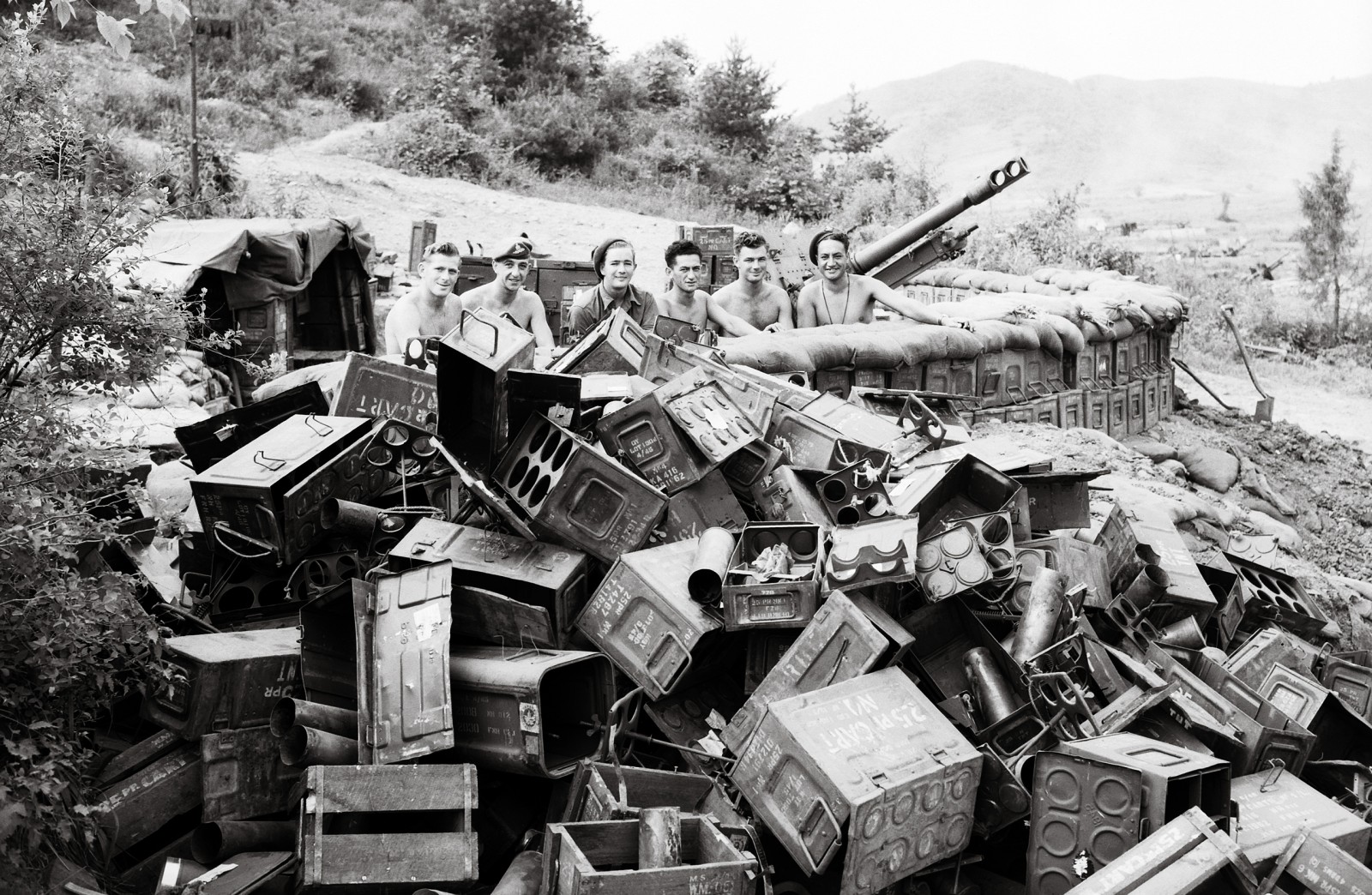 After the Commonwealth commemorations in the afternoon, attended by Prince Andrew, the Duke of York, there is an embarrassing media scrum in the New Zealand section of the cemetery which the Prince visits first. International media are clamouring for images of the Duke and Mrs Teresa Holder who has come to pay tribute to her brother, killed on September 14, 1952.
After the Commonwealth commemorations in the afternoon, attended by Prince Andrew, the Duke of York, there is an embarrassing media scrum in the New Zealand section of the cemetery which the Prince visits first. International media are clamouring for images of the Duke and Mrs Teresa Holder who has come to pay tribute to her brother, killed on September 14, 1952.
As camera crews trample over graves and poppies laid by New Zealanders to capture images of her tears for the nightly news, away from the ruck old soldiers are quietly recalling fallen friends.
Tom Collier from Dannevirke pauses at the graves of two former mates, Jeff Watson and Lyn Murray of Pahiatua, who both enlisted on the same day and are now buried next to each other. They were 23. Collier remembers them as good blokes but is also shaken by just how much comes back when confronted by the names on the plaques.
Feehan recalls how you got to know blokes quickly. "When you are in a situation which is tight, you like to talk and on long nights when you are on gun duty and doing nothing for hours you talk about everything. Girls, your ambitions, what you want to do when it's over ... We were just young blokes, most of us, and hadn't done very much, so we'd talk about home and family and friends, and just what we wanted to do in our lives."
Many on the pilgrimage admit they were keen to join the Army because older brothers had served in the Second World War, or they just wanted an adventure. None knew anything about Korea, and most came home none the wiser about the country or the war.
As New Zealand historian Ian McGibbon, accompanying the group, notes: "They had a worm's eye view of the war, just seeing what they saw in front of them. Like most soldiers doing the actual fighting they didn't have any idea of the bigger picture."
But what they saw up close was enough, even this time around.
After the commemorations at the UN cemetery Ryan is shaken: "I felt bloody awful. Four of my mates were right there, just as if it was yesterday."
The personal memories were rekindled with equal poignancy with the ceremony in Kap'yong, where the fighting had been at its most brutal for the New Zealanders. The ceremony on Monday was attended by 80 New Zealand servicemen and 100 former soldiers from Australia, who were welcomed by General Lee Sang-hoon (retired), the chairman of the Korean Veterans Association. Some 100 veterans from the Republic of Korea Army also took part in the ceremonies.
After the commemoration and wreath-laying, veterans reminisced about the battle, which saw New Zealand forces at one point fire over 2300 rounds in one hour. Allen "Killroy" Martin recalled an area the size of a football field littered with the bodies of Chinese troops.
All noted the intensity of the four-day battle and that it added another chapter to the Gallipoli spirit of the Anzac troops.
One of the returned veterans put it with simple modesty: "We had a job to do, and we went and did it," said Murray Forsyth.
Over the following week sadness and memory are mixed with humour. There are endless bus trips which they endure with jokes and they are obviously impressed by the densely populated cities they see beyond the windows. These are punctuated by numerous and obviously sincere speeches of gratitude by Korean veterans and military officers, and an excellent dinner and welcome at the New Zealand ambassador's home in Seoul.
The trip to P'anmunjom truce village, 56km from Seoul in the Demilitarised Zone, involves a sudden flurry of excitement when the group is hustled away because a large group of North Korean dignitaries and attendant military personnel arrive on the other side.
Later in the day they are briefed by Korean military at an observation post which looks down on North Korea across the valley and takes in Hill 355 where many saw action. They are warned not to take photos of North Korea, many do. Their cameras aren't confiscated.
Privately some of the old boys are sceptical about the bluff and bluster of the American military whom they consider a bit self-important as defenders of the free world.
A couple don't rate them as fighting troops and many note the difference between the chest-beating speech of America's General Thomas Schwartz, commander-in-chief of the UN Command, Republic of Korea and US combined forces and the US forces in Korea at the UN commemoration, and that of British officer General (R) Sir Anthony Farrar-Hockley, who was captured during the war and escaped from the North Koreans and Chinese six times.
"One was a real hero, the other bugger just a bloody try-hard, but don't quote me," says one out of the side of his mouth later.
Farrar-Hockley has also reminded that the Korean War was an extraordinary event - the UN put the call out and troops or medical support came from 21 countries. That has never happened since.
It was also the last time New Zealand called for volunteers from the civilian population. This forgotten war was historic for those reasons alone. That the troops fought so heroically against first the North Korean Army and then the Chinese makes it even more so.
But the lack of acknowledgment by the New Zealand Government, this trip aside, still smarts. Frank Butler says he hasn't worn his service medals for 38 years because of that lack of recognition. But he's wearing them with pride on this trip, one he admits - with six kids - he could never afford to make previously. The grandkids put his name down and he was delighted when it came up. "I'd never won a chook in a raffle."
Today the pilgrimage party is back home. They have dedicated a rock in Pusan high on a hill overlooking the harbour and near where the first contingent of New Zealanders were initially barracked, they have attended ceremonies, seen a highly industrialised and economically vigorous country they knew only as smoking ruins and barren hills, and renewed old acquaintances. They have exchanged memories and looked in silence at places where they fought and their friends fell.
Mostly, however, they have been feted as heroes in a small, grateful country many thousands of kilometres away, and have been given medallions, medals and gifts by Koreans.
Today they have returned to their lives in suburban homes, pensioner flats and small country towns. They have become anonymous again. But for most, their lives have been as much changed by events in the past 10 days as they were in that appalling, inconclusive war of half a century ago.
"This was the final chapter," says Miller, "now I can put some things to rest."
"It's been good," says Feehan, who was uncertain before the trip started. "Just a feeling that something is over. I'm glad I came."
And for many, it wasn't in the big ceremonies but in small incidents.
Robert Mason, a rascally 77-year-old with stories of often dodgy activities, unexpectedly had his life changed while waiting in the queue for his lunch at the UN cemetery in Pusan.
With damp eyes, this tough old character from a war veterans' home in Levin tells of a middle-aged woman in traditional Korean dress approaching him as falling blossom from the trees carpets the grass.
"She came up and said, 'I'd like to thank you for what you did for me and my family.' With no intonation in her voice, just saying it straight, she just brought me to my knees. It made everything in my life pertaining to this all worthwhile.
"She did in about three minutes what all the meetings and conversations I've had in 50 years have failed to do. I've had a lesson from her, and I'm proud to have had it. I think I'm a better man for it."

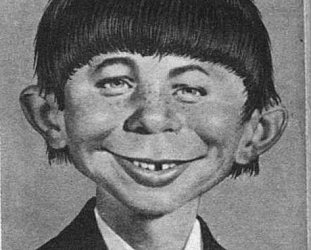
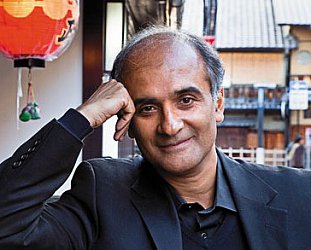
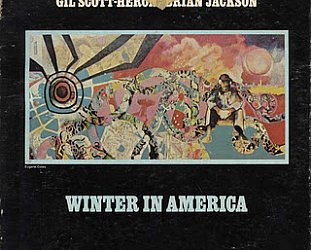
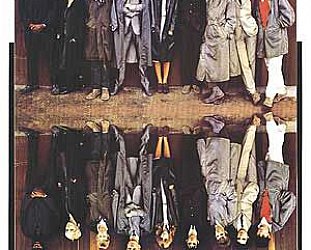
post a comment